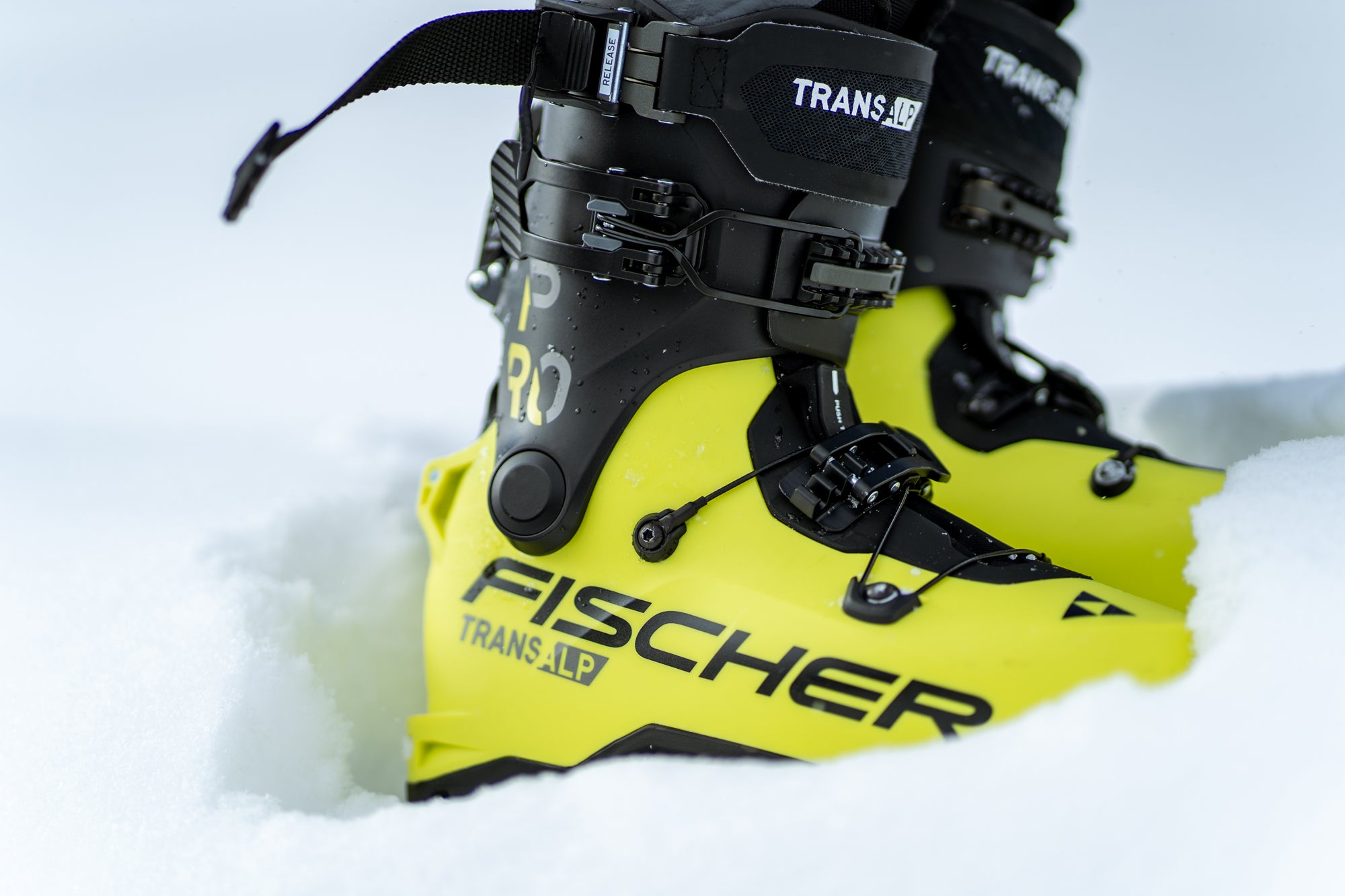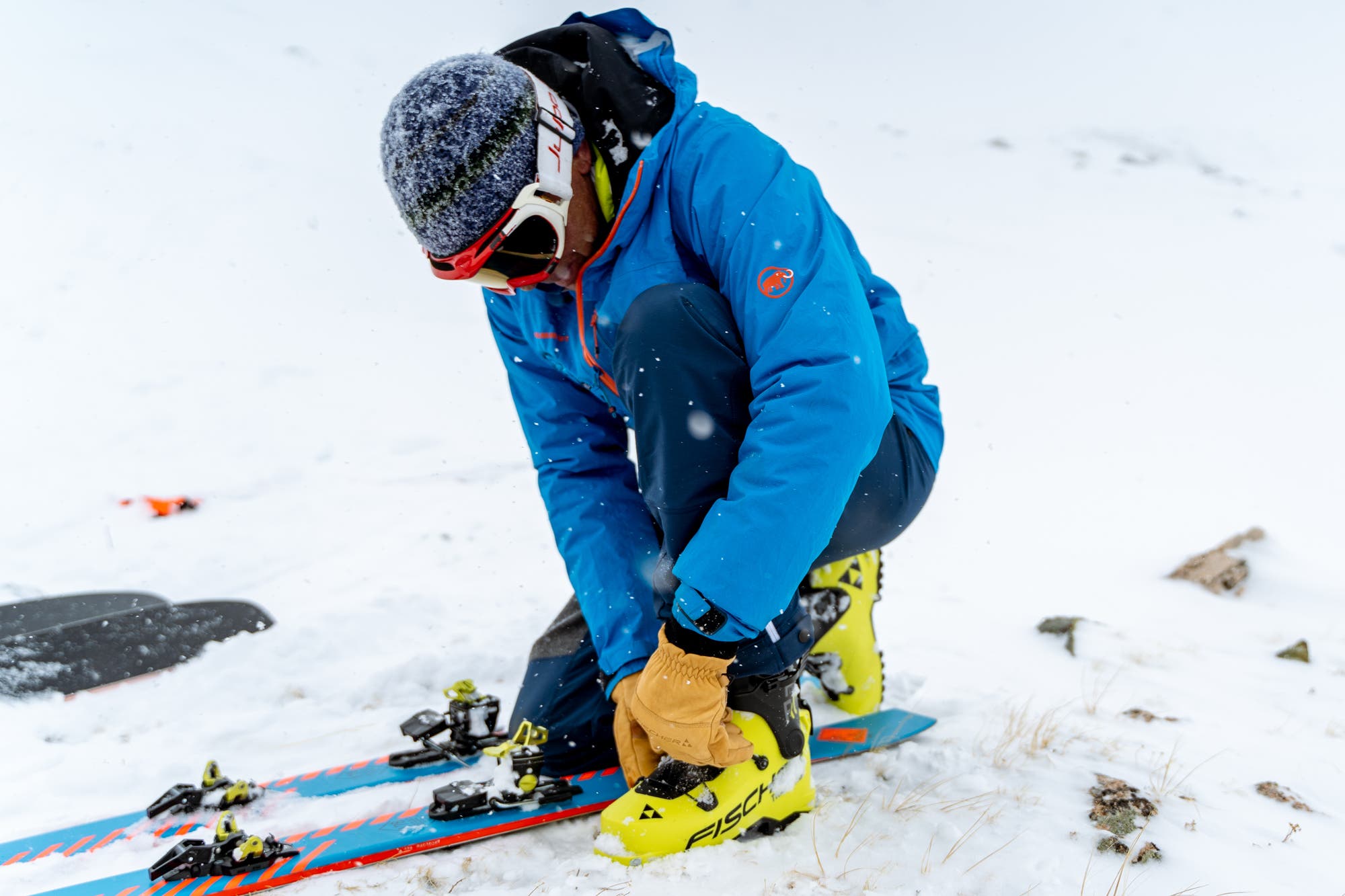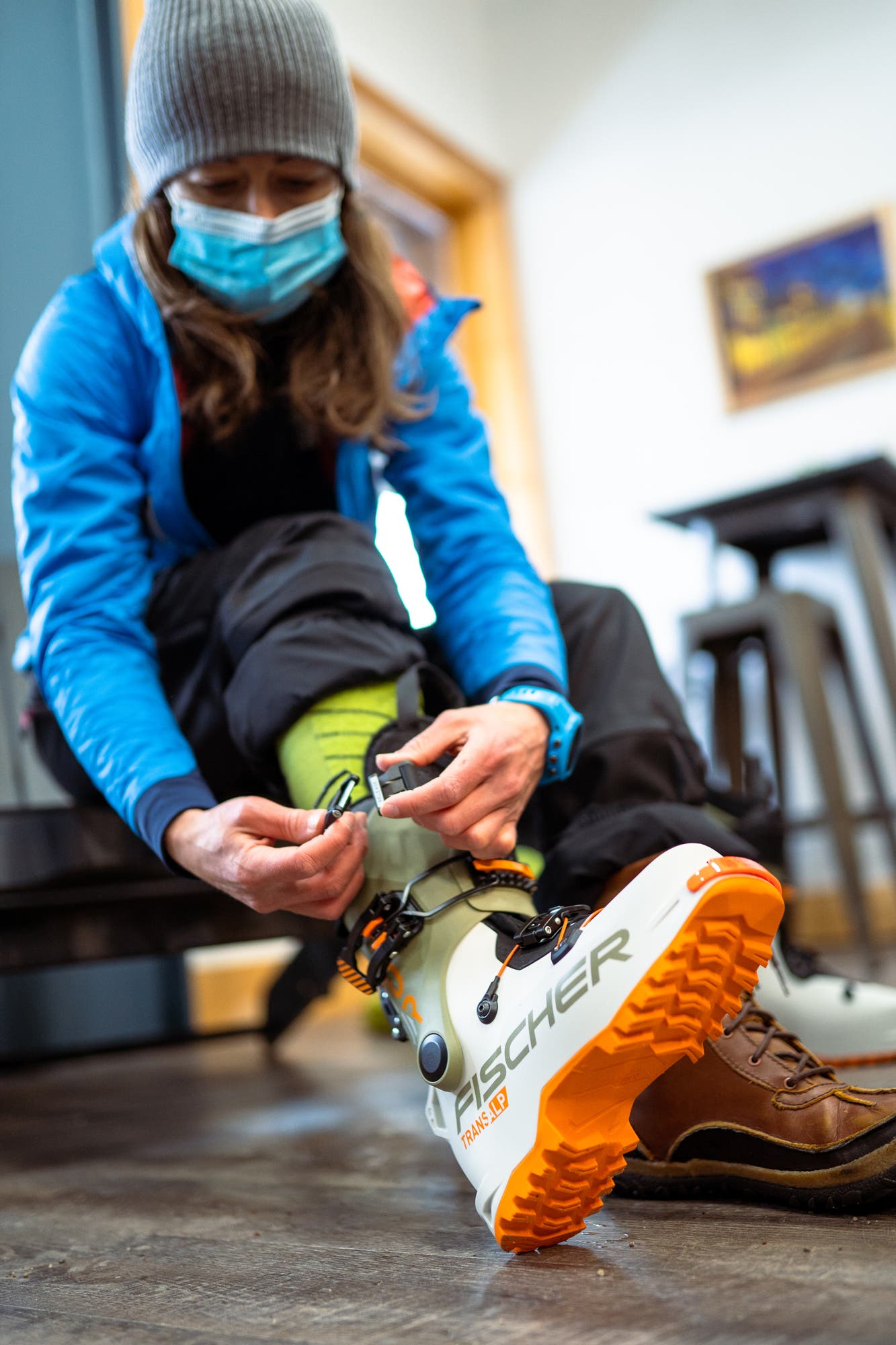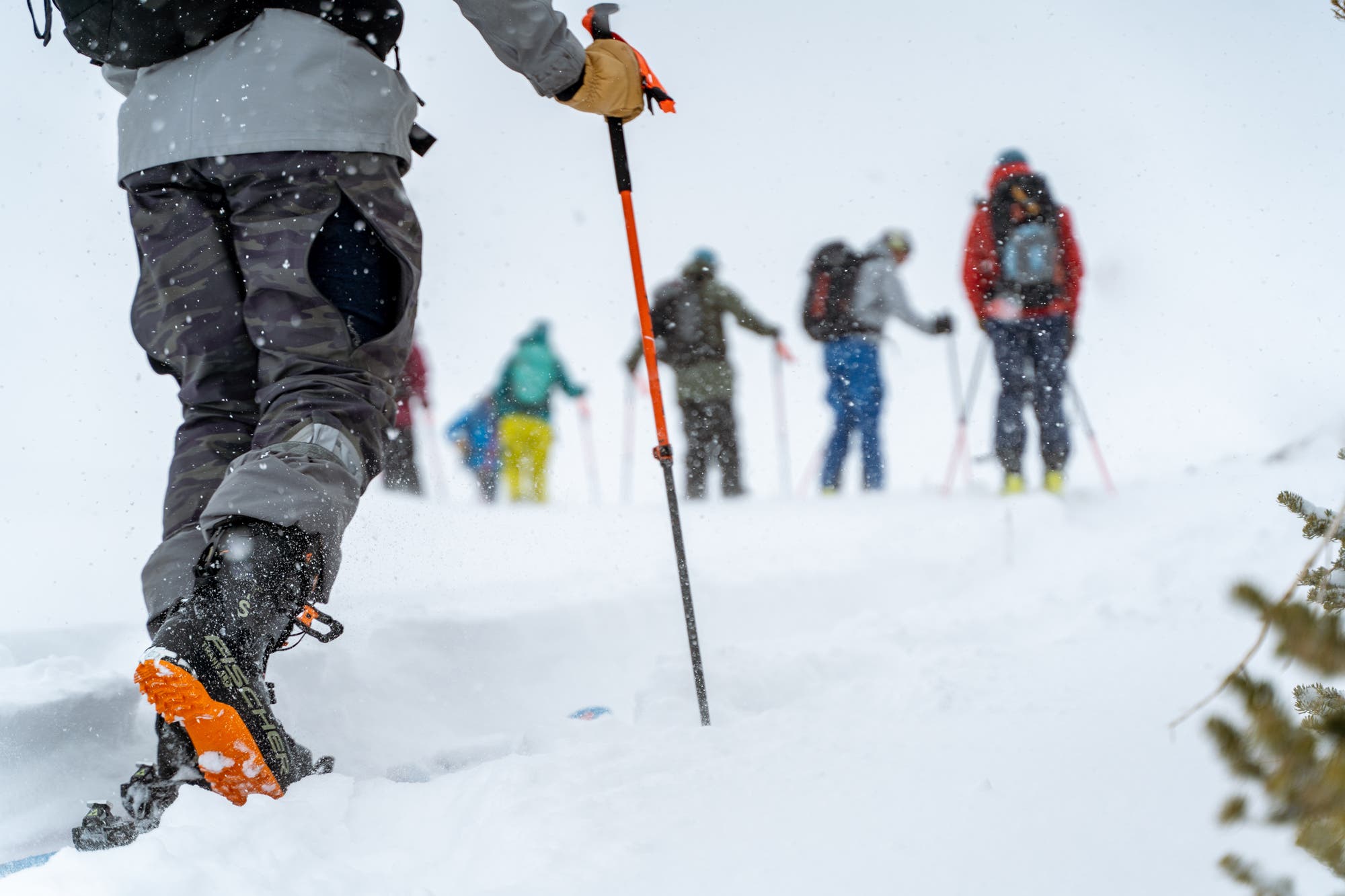Unlike Most Ski Boots, Fischer's New Backcountry Boot is Better for the Planet

(Photo: Austin Seback)
For the past few seasons, the majority of backcountry ski boot brands have focused on taking a product designed for resort skiing and adapting it for ski touring, or on making super lightweight options for SkiMo racers and big ski mountaineering missions. The backcountry boots designed for the middle ground—those designed for backcountry purists who need reliable ski boots that ski well, tour better, and, most importantly, don’t break—have languished in a technology purgatory for years.
Fischer’s new TransAlp backcountry ski boot, slated for release in 2021-’22, gives the middle category some much-needed love. Featuring three different models—the Pro, Tour, and TS—the TransAlp line is built to make the touring experience comfortable and the downhill fun thanks to a nifty, sustainable material called Pebax Rnew.
Made from 65-percent castor oil, Pebax Rnew offers a similar weight, stiffness, and bootfitting characteristics as Grilamid, but is more durable. The skiing performance of Pebax Rnew is also arguably better than Grilamid because it’s built with a soft and a hard component in the material chain, which provides more liveliness and responsiveness.
The other striking thing about the Fischer TransAlp is the aesthetic shelf appeal. The use of two buckles and a strap on the front of the boot, and a very intuitive ski/walk switch on the back, provides comfort in simplicity. Combined with clean lines and sharp colors, these boots also just look good.
Of all the tech built into this boot, one thing that stands out is the adjustable forward lean. Many backcountry ski boots are designed for more upright skiers, but the TransAlp can be set at a 16-degree forward lean, which is more in line with alpine ski boots. Skiers looking for a more upright position can easily adjust the boot back to 13 degrees. The TransAlp also features a 100mm last, full crampon compatibility, a full rubber sole, and a heat-moldable liner.
These performance factors, plus the fact that more than half of the shell of the TransAlp Pro is made from renewable castor beans, warrant the attention of every backcountry skier.
SKI will have a full review of the Fischer TransAlp backcountry ski boot this autumn, which is also when the boot will be available for purchase. Find a retailer on Fischer’s website.
Early Review: Dynafit’s All-New Radical Pro Backcountry Ski Boot
Fischer TransAlp Tech Specs
Fischer TransAlp Pro

- Construction: Pebax Rnew Shell and Cuff
- Buckles: 2
- Weight: 1,280 g (26.5)
- Size Run: 22.5-30.5
- MSRP: $850
- Available: Fall 2021
Fischer TransAlp Tour

- Construction: Pebax Rnew Shell, TPU Cuff
- Weight: 1,350g (26.5)
- Sizes: 25.5-30.5
- Women’s Sizes: 22.5-27.5
- MSRP: $750
- Available: Fall 2021
Fischer TransAlp TS

- Construction: TPU Shell and Cuff
- Weight: 1,380 g (26.5)
- Sizes: 22.5-30.5
- MSRP: $650
- Available: Fall 2021
More 2022 Gear Previews
Check out the new Dynafit Radical Pro Ski Boot
Tecnica Puts a Lock on New Cochise Boot Ski/Walk Switch
Best Backcountry Ski Boots of the Season